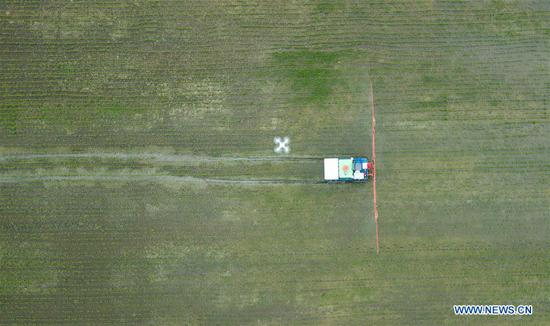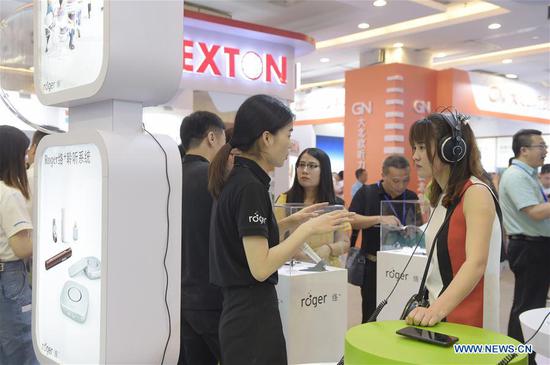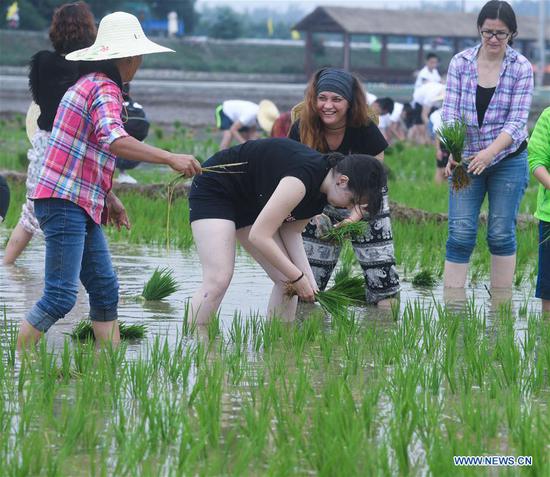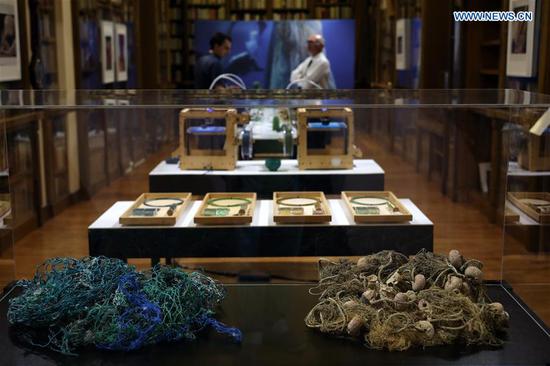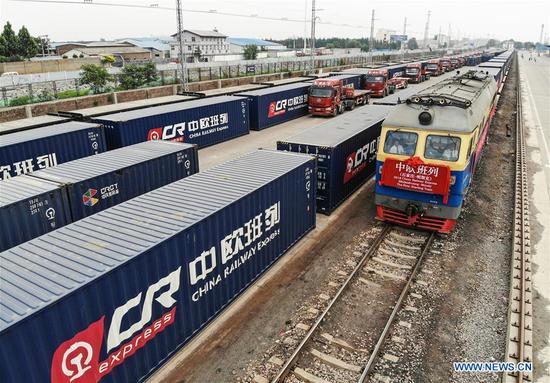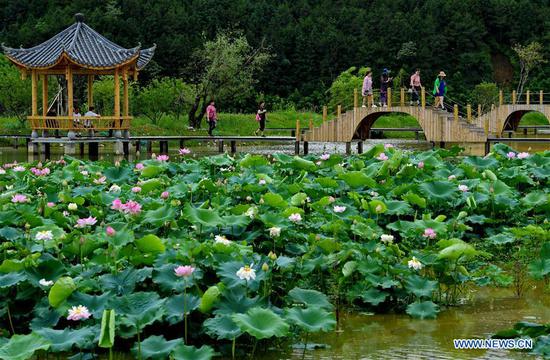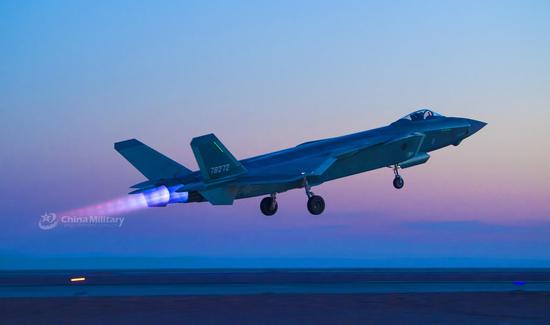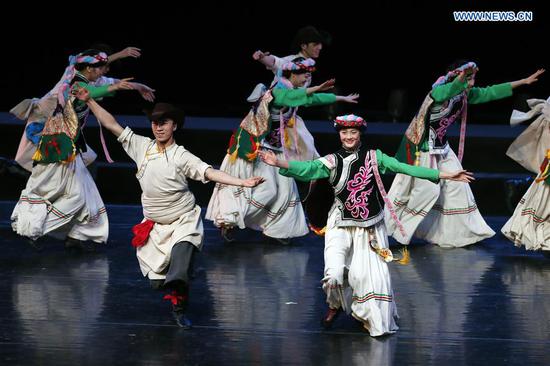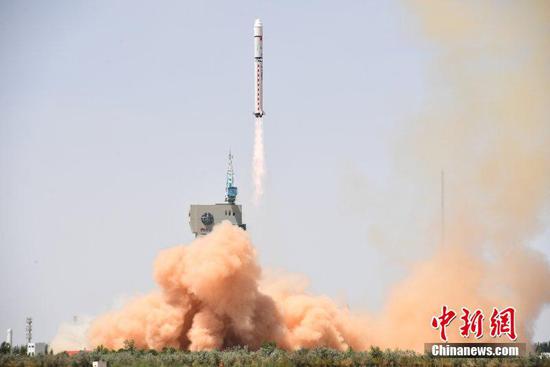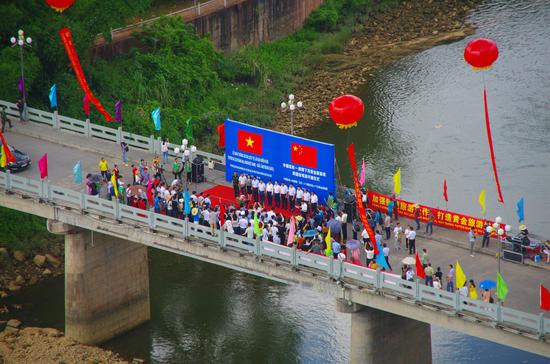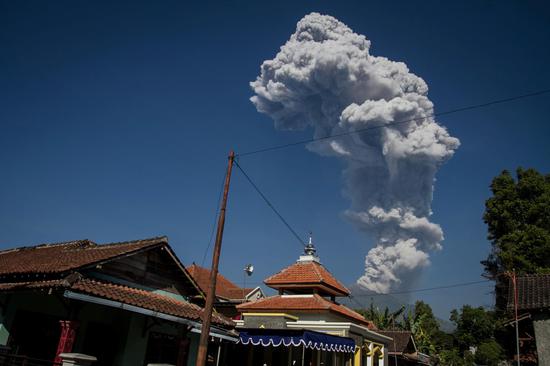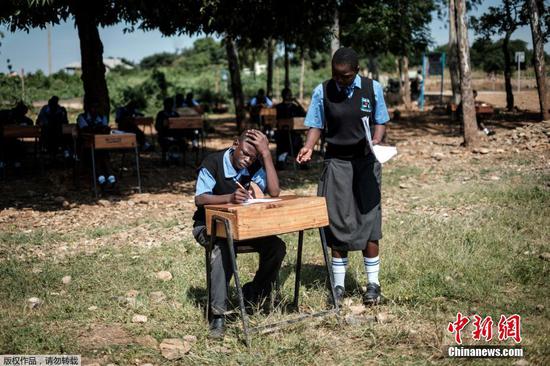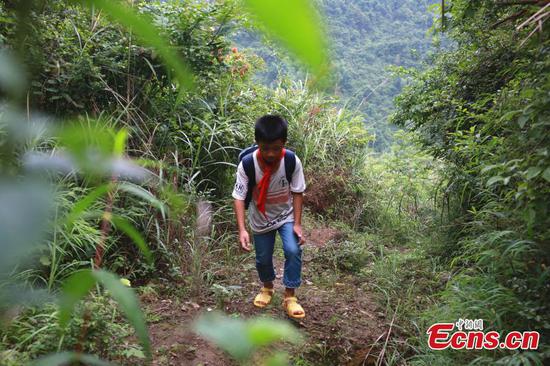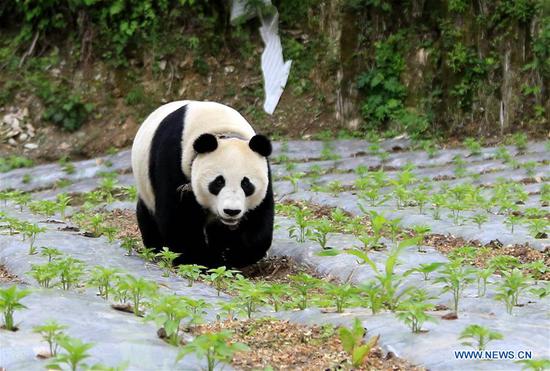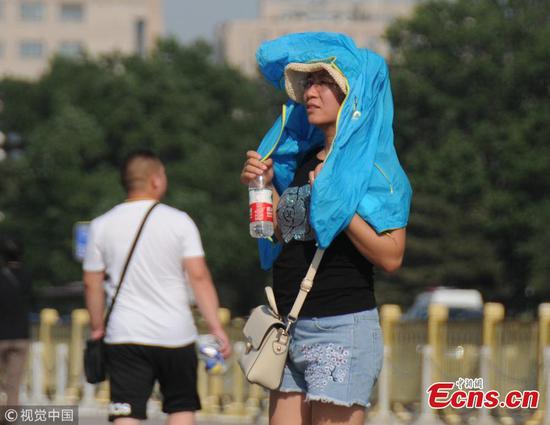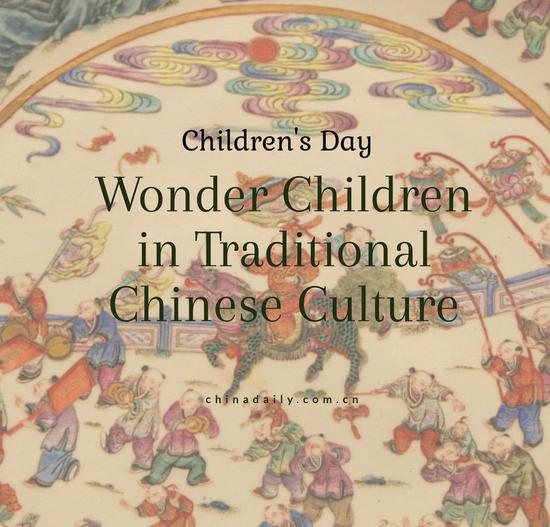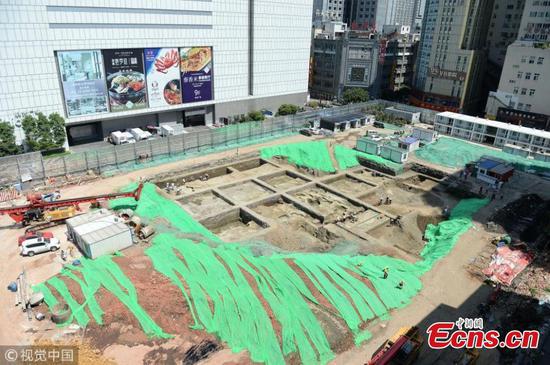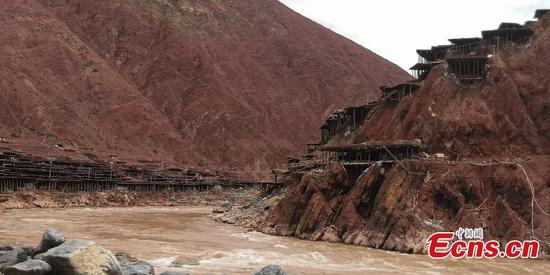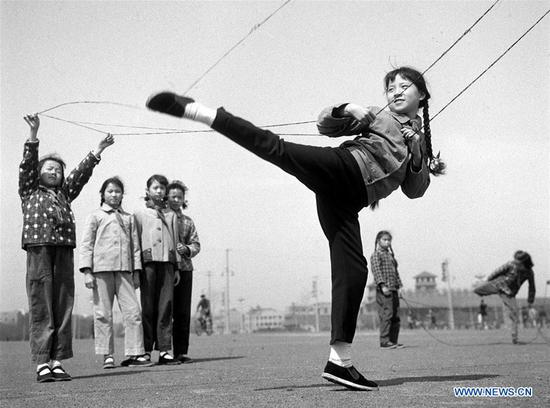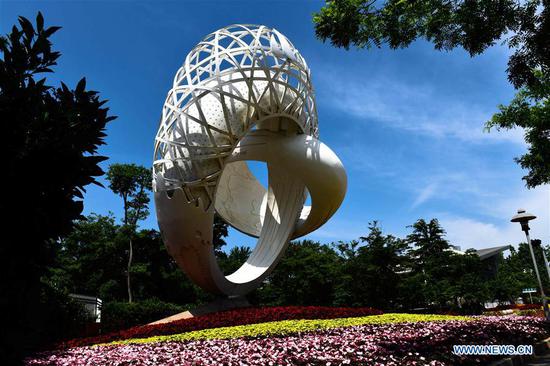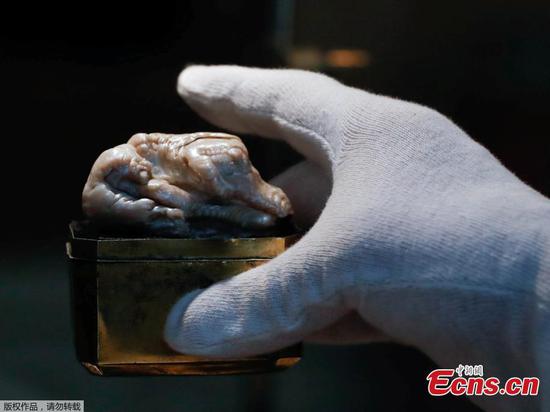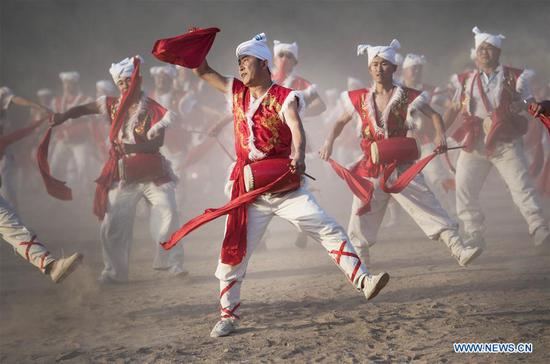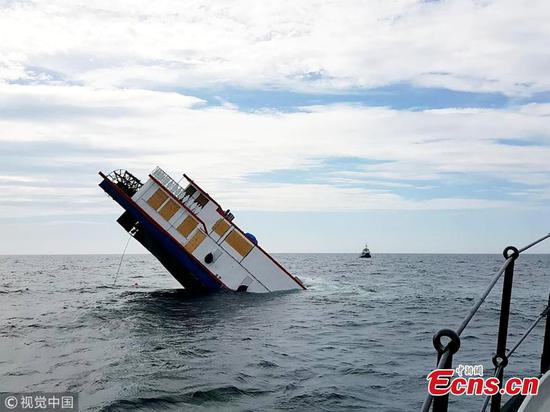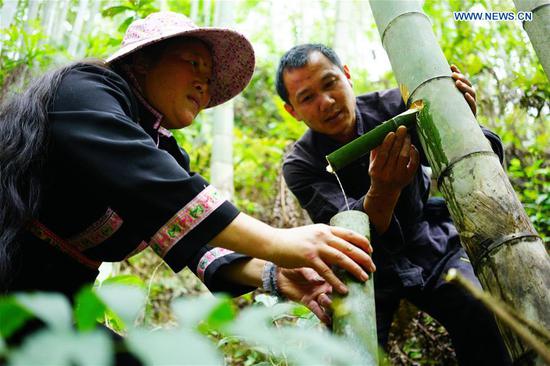The 17th Shangri-La Dialogue concluded here Sunday with the Korean Peninsula nuclear issue, regional security order and non-traditional security challenges, as well as China's positive role in Asia-Pacific region, widely discussed at the three-day event.
China advocates the concept of common, comprehensive, cooperative and sustainable security, takes win-win cooperation as the core of new international relations based on partnerships instead of alliances, and strives to pursue a new path of security, which is built by all, shared by all, win-win for all and safeguarded by all, said He Lei, Vice President of the Academy of Military Science of the Chinese People's Liberation Army and the head of the Chinese delegation to the dialogue.
DENUCLEARIZATION OF THE KOREAN PENINSULA
The Korean Peninsula nuclear issue has made positive progresses recently. U.S. President Donald Trump said on Friday that he would meet with the top leader of the Democratic People's Republic of Korea (DPRK) Kim Jong Un on June 12 in Singapore as originally scheduled after recent twists and turns.
"The time is different and North Korea has a new leader now. I believe that North Korea is looking to change the course of history and making decisive actions towards that," said South Korean Defense Minister Song Young-moo, expressing the belief that the efforts put up by leaders of the two countries will open a new era.
In short term, a big challenge for Asia-Pacific security is the Korean Peninsula nuclear issue, and even if it was managed, coping with that would be a big long-term challenge, said Tim Huxley, executive director of the International Institute for Strategic Studies-Asia in Singapore.
The DPRK promised to discontinue its nuclear tests before reaching any agreement with the United States, laying foundation for a positive prospect of denuclearization of the Korean Peninsula, said Chen Gang, assistant director of policy research at the East Asian Institute of the National University of Singapore.
China is committed to facilitating peace talks on the Korean Peninsula issue and will only play a positive role, Chen said.
JOIN HANDS TO FIGHT NON--TRADITIONAL THREATS
Besides traditional international security issues, terrorism, separatism, and online security have been in focus at the conference. Most participants at the conference agreed that countries should team up to fight non-traditional security threats.
Indonesian Defense Minister Ryamizard Ryacudu called upon countries to be more vigilant and focus on unity by "enlarging our similarities and minimizing differences" to anticipate the evolution of real threats such as "terrorism and radicalism, separatism and armed rebellion, natural and environmental disasters, border area disputes."
The above-mentioned threats have no state boundary, and are not related to religion, unpredictable in time, and random in hurting victims, he said.
All countries must intensely coordinate national instruments of law enforcement, diplomacy, economy, development policy and the military, and then apply a well-tailored and targeted mix of measures, said German Minister of Defense Ursula von der Leyen.
"Internationally we need to cooperate even closer in our respective regional organizations and alliances. When poverty grows radicalization, it´s education, human security and jobs which foster reconciliation stability and peace," she said.
CHINA'S POSITIVE ROLE
Representatives at the conference also talked about China's role in the Asia-Pacific region, stressing that China has contributed to peace and stability in the region.
China offered positive views of regional economic integration, and suggested new security concepts, according to a report, Asia-pacific Regional Security Assessment 2018, issued by the International Institute for Strategic Studies, organizer of the conference..
"No other relationship of India has as many layers as our relations with China," and the two countries have displayed "maturity and wisdom" in managing issues and ensuring a peaceful border, said Indian Prime Minister Narendra Modi in his keynote speech at the conference.
Asia and the world will have a better future when India and China work together in trust and confidence, sensitive to each other's interests, he said.
"We should also acknowledge that a prosperous China, constructively engaged in global affairs, is a good thing. It is not possible to address global challenges such as North Korea or climate change without China's involvement," said Australian Minister for Defence Marise Payne at the conference.
In practice, the comprehensive new security concept proposed by China has been replacing zero-sum game in dealing with state relations, said Oh Ei Sun, special adviser for international affairs of Malaysia's Asian Strategy and Leadership Institute.
China's policy for Asia-Pacific security cooperation talks about sustainability of the security order, building new foreign relations, and this is different from the zero-sum and post cold-war mentality, said Asanga Abeyagoonasekera, director general of the Institute of National Security Studies in Sri Lanka.









